#antarctic treaty
Text
Antarctica is a 300 foot wall of ice that encircles our known area of earth. What is beyond that ice wall? Research the Antarctic Treaty because it keeps everyone from ever finding out. What are they hiding? 🤔
#pay attention#educate yourselves#educate yourself#knowledge is power#reeducate yourself#reeducate yourselves#think about it#think for yourselves#think for yourself#do your homework#do some research#do your own research#ask yourself questions#question everything#antarctica#antarctic treaty
121 notes
·
View notes
Photo
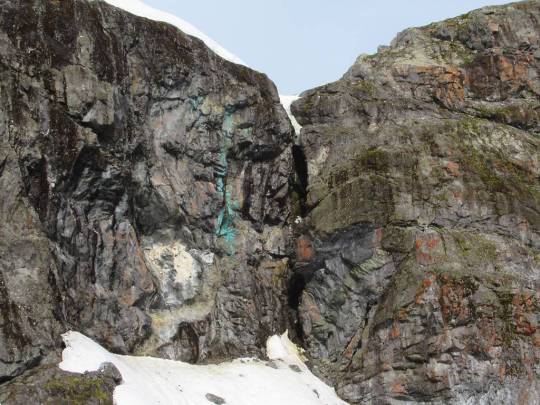
A seam of copper is clearly visible on this cliff on Paradise Bay. Mining is prohibited in Antarctica under the 1976 Antarctic Treaty.
4 notes
·
View notes
Text
XXX3 December 1
xxx3 December 1
December is a month of wonder, joy, and celebration. It is a time when the chill in the air and the falling snowflakes create a winter’s dream, reminding us to slow down and savor the simple moments of life. The holiday season fills our hearts with love, peace, and goodwill towards all. December is a time for reflection, where we look back on the year gone by and celebrate the…

View On WordPress
#41st President#Antarctic Treaty#Australia#civil rights movement#December 1#Denmark#draft lottery#George H.W. Bush#Iceland#Independence#military activity#Montgomery Bus Boycott#Papua New Guinea#Rosa Parks#Soviet Union#territorial claims#Ukrainian independence referendum#United States.#Vietnam War
1 note
·
View note
Link
#adelie penguin#adventure#adventure travel#antarctic peninsula#antarctic treaty#antarctica#birds#candice gaukel andrews#climate change#conservation#ecotravel#ecotourism#environment#global warming#great barrier reef#ice sheets#national parks#natural habitat adventures#nathab#nature#nature lovers#nature travelers#penguins#remote#science#scientific research#sea level rise#tourism#travel#wallace stegner
0 notes
Text
Interesting facts about Antarctica
#antarctica#antarctic penguins#antarctic treaty#antarctic wildlife#antarcticafacts#worldfacts#travelfacts#travel#tourism#geotourism#naturaltourism
1 note
·
View note
Text
Ratify the Antarctic Treaty of 1959.

Twelve countries represented by the Governments of Argentina, Australia, Belgium, Chile, the French Republic, Japan, New Zealand, Norway, the Union of South Africa, the Union of Soviet Socialist Republics, the United Kingdom of Great Britain and Northern Ireland, and the United States of America, signed the Antarctic Treaty on 1 December 1959 in Washington.
Recognizing that it is in the interest of all mankind that Antarctica shall continue for ever to be used exclusively for peaceful purposes and shall not become the scene or object of international discord;
Acknowledging the substantial contributions to scientific knowledge resulting from international cooperation in scientific investigation in Antarctica;
Convinced that the establishment of a firm foundation for the continuation and development of such cooperation on the basis of freedom of scientific investigation in Antarctica as applied during the International Geophysical Year accords with the interests of science and the progress of all mankind;
Convinced also that a treaty ensuring the use of Antarctica for peaceful purposes only and the continuance of international harmony in Antarctica will further the purposes and principles embodied in the Charter of the United Nations;
Have agreed as follows:
Article I — Peaceful purposes
Antarctica shall be used for peaceful purposes only. There shall be prohibited, inter alia, any measure of a military nature, such as the establishment of military bases and fortifications, the carrying out of military manoeuvres, as well as the testing of any type of weapon.
The present Treaty shall not prevent the use of military personnel or equipment for scientific research or for any other peaceful purpose.
Article II — Freedom of scientific investigation
Freedom of scientific investigation in Antarctica and cooperation toward that end, as applied during the International Geophysical Year, shall continue, subject to the provisions of the present Treaty.
Article III — International scientific cooperation
In order to promote international cooperation in scientific investigation in Antarctica, as provided for in Article II of the present Treaty, the Contracting Parties agree that, to the greatest extent feasible and practicable:
information regarding plans for scientific programs in Antarctica shall be exchanged to permit maximum economy of and efficiency of operations;
scientific personnel shall be exchanged in Antarctica between expeditions and stations;
scientific observations and results from Antarctica shall be exchanged and made freely available.
In implementing this Article, every encouragement shall be given to the establishment of cooperative working relations with those Specialized Agencies of the United Nations and other international organizations having a scientific or technical interest in Antarctica.
Article IV — Territorial sovereignty
Nothing contained in the present Treaty shall be interpreted as:
a renunciation by any Contracting Party of previously asserted rights of or claims to territorial sovereignty in Antarctica;
a renunciation or diminution by any Contracting Party of any basis of claim to territorial sovereignty in Antarctica which it may have whether as a result of its activities or those of its nationals in Antarctica, or otherwise;
prejudicing the position of any Contracting Party as regards its recognition or non-recognition of any other State‚s rights of or claim or basis of claim to territorial sovereignty in Antarctica.
No acts or activities taking place while the present Treaty is in force shall constitute a basis for asserting, supporting or denying a claim to territorial sovereignty in Antarctica or create any rights of sovereignty in Antarctica. No new claim, or enlargement of an existing claim, to territorial sovereignty in Antarctica shall be asserted while the present Treaty is in force.
Article V — Nuclear activity
Any nuclear explosions in Antarctica and the disposal there of radioactive waste material shall be prohibited.
In the event of the conclusion of international agreements concerning the use of nuclear energy, including nuclear explosions and the disposal of radioactive waste material, to which all of the Contracting Parties whose representatives are entitled to participate in the meetings provided for under Article IX are parties, the rules established under such agreements shall apply in Antarctica.
Article VI — Geographical coverage
The provisions of the present Treaty shall apply to the area south of 60° South Latitude, including all ice shelves, but nothing in the present Treaty shall prejudice or in any way affect the rights, or the exercise of the rights, of any State under international law with regard to the high seas within that area.
Article VII — Inspections
In order to promote the objectives and ensure the observance of the provisions of the present Treaty, each Contracting Party whose representatives are entitled to participate in the meetings referred to in Article IX of the Treaty shall have the right to designate observers to carry out any inspection provided for by the present Article. Observers shall be nationals of the Contracting Parties which designate them. The names of observers shall be communicated to every other Contracting Party having the right to designate observers, and like notice shall be given of the termination of their appointment.
Each observer designated in accordance with the provisions of paragraph 1 of this Article shall have complete freedom of access at any time to any or all areas of Antarctica.
All areas of Antarctica, including all stations, installations and equipment within those areas, and all ships and aircraft at points of discharging or embarking cargoes or personnel in Antarctica, shall be open at all times to inspection by any observers designated in accordance with paragraph 1 of this Article.
Aerial observation may be carried out at any time over any or all areas of Antarctica by any of the Contracting Parties having the right to designate observers.
Each Contracting Party shall, at the time when the present Treaty enters into force for it, inform the other Contracting Parties, and thereafter shall give them notice in advance, of
all expeditions to and within Antarctica, on the part of its ships or nationals, and all expeditions to Antarctica organized in or proceeding from its territory;
all stations in Antarctica occupied by its nationals; and
any military personnel or equipment intended to be introduced by it into Antarctica subject to the conditions prescribed in paragraph 2 of Article I of the present Treaty.
Article VIII — Jurisdiction
In order to facilitate the exercise of their functions under the present Treaty, and without prejudice to the respective positions of the Contracting Parties relating to jurisdiction over all other persons in Antarctica, observers designated under paragraph 1 of Article VII and scientific personnel exchanged under sub-paragraph 1(b) of Article III of the Treaty, and members of the staffs accompanying any such persons, shall be subject only to the jurisdiction of the Contracting Party of which they are nationals in respect of all acts or omissions occurring while they are in Antarctica for the purpose of exercising their functions.
Without prejudice to the provisions of paragraph 1 of this Article, and pending the adoption of measures in pursuance of subparagraph 1(e) of Article IX, the Contracting Parties concerned in any case of dispute with regard to the exercise of jurisdiction in Antarctica shall immediately consult together with a view to reaching a mutually acceptable solution.
Article IX — Treaty Meetings
Representatives of the Contracting Parties named in the preamble to the present Treaty shall meet at the City of Canberra within two months after the date of entry into force of the Treaty, and thereafter at suitable intervals and places, for the purpose of exchanging information, consulting together on matters of common interest pertaining to Antarctica, and formulating and considering, and recommending to their Governments, measures in furtherance of the principles and objectives of the Treaty, including measures regarding:
use of Antarctica for peaceful purposes only;
facilitation of scientific research in Antarctica;
facilitation of international scientific cooperation in Antarctica;
facilitation of the exercise of the rights of inspection provided for in Article VII of the Treaty;
questions relating to the exercise of jurisdiction in Antarctica;
preservation and conservation of living resources in Antarctica.
Each Contracting Party which has become a party to the present Treaty by accession under Article XIII shall be entitled to appoint representatives to participate in the meetings referred to in paragraph 1 of the present Article, during such times as that Contracting Party demonstrates its interest in Antarctica by conducting substantial research activity there, such as the establishment of a scientific station or the despatch of a scientific expedition.
Reports from the observers referred to in Article VII of the present Treaty shall be transmitted to the representatives of the Contracting Parties participating in the meetings referred to in paragraph 1 of the present Article.
The measures referred to in paragraph 1 of this Article shall become effective when approved by all the Contracting Parties whose representatives were entitled to participate in the meetings held to consider those measures.
Any or all of the rights established in the present Treaty may be exercised as from the date of entry into force of the Treaty whether or not any measures facilitating the exercise of such rights have been proposed, considered or approved as provided in this Article.
Article X — Activities contrary to Treaty
Each of the Contracting Parties undertakes to exert appropriate efforts, consistent with the Charter of the United Nations, to the end that no one engages in any activity in Antarctica contrary to the principles or purposes of the present Treaty.
Article XI — Disputes between Parties
If any dispute arises between two or more of the Contracting Parties concerning the interpretation or application of the present Treaty, those Contracting Parties shall consult among themselves with a view to having the dispute resolved by negotiation, inquiry, mediation, conciliation, arbitration, judicial settlement or other peaceful means of their own choice.
Any dispute of this character not so resolved shall, with the consent, in each case, of all parties to the dispute, be referred to the International Court of Justice for settlement; but failure to reach agreement on reference to the International Court shall not absolve parties to the dispute from the responsibility of continuing to seek to resolve it by any of the various peaceful means referred to in paragraph 1 of this Article.
Article XII — Modification and duration
The present Treaty may be modified or amended at any time by unanimous agreement of the Contracting Parties whose representatives are entitled to participate in the meetings provided for under Article IX. Any such modification or amendment shall enter into force when the depositary Government has received notice from all such Contracting Parties that they have ratified it.
Such modification or amendment shall thereafter enter into force as to any other Contracting Party when notice of ratification by it has been received by the depositary Government. Any such Contracting Party from which no notice of ratification is received within a period of two years from the date of entry into force of the modification or amendment in accordance with the provision of subparagraph 1(a) of this Article shall be deemed to have withdrawn from the present Treaty on the date of the expiration of such period.
Article XIII — Ratification and entry into force
The present Treaty shall be subject to ratification by the signatory States. It shall be open for accession by any State which is a Member of the United Nations, or by any other State which may be invited to accede to the Treaty with the consent of all the Contracting Parties whose representatives are entitled to participate in the meetings provided for under Article IX of the Treaty.
Ratification of or accession to the present Treaty shall be effected by each State in accordance with its constitutional processes.
Instruments of ratification and instruments of accession shall be deposited with the Government of the United States of America, hereby designated as the depositary Government.
The depositary Government shall inform all signatory and acceding States of the date of each deposit of an instrument of ratification or accession, and the date of entry into force of the Treaty and of any modification or amendment thereto.
Upon the deposit of instruments of ratification by all the signatory States, the present Treaty shall enter into force for those States and for States which have deposited instruments of accession. Thereafter the Treaty shall enter into force for any acceding State upon the deposit of its instruments of accession.
The present Treaty shall be registered by the depositary Government pursuant to Article 102 of the Charter of the United Nations.
Article XIV — Deposition
The present Treaty, done in the English, French, Russian and Spanish languages, each version being equally authentic, shall be deposited in the archives of the Government of the United States of America, which shall
transmit duly certified copies thereof to the Governments of the signatory and acceding States.
The Antarctic Treaty (1959)
0 notes
Text
Have y'all heard the story where hair was a symbol of peace because rulers would cut their hair when they declared war - so long hair represented a peaceful empire, a powerful group that no one dared to threaten, or a ruler that was slow to anger?
Consider: antarctic empire where philza's hair is short to show that he is constantly prepared to battle the threats around them with full military force vs Techno with long hair as a sign that the enemies around them will have no impact on the peace within the empire because the threat they pose is so insignificant he won't even acknowledge it. The threat would be gone before he would finish cutting his hair and so he doesn't.
#constantly thinking of phil nuking random things while techno is being pestered by tommy for war and somehow gets him to sign#a peace treaty that actually benefits him. or being pestered by tommy and getting his allies to turn and join the ae lol#anyways. two emperors. following the same tradition. dually representing the strength and might and peace and power above their enemies#antarctic empire#smp earth headcanons
193 notes
·
View notes
Text
a great oil reserve was found in the argentine part of Antarctica… great news right… heh… when do the british declare war on us with the aid of usa once again and finally blast us all to oblivion
#we have at least till the antarctic treaties expire unless our local leatherface president just gifts usa and england all of it ^_^#lovely times in the southern cone everything is fiine ^_^
6 notes
·
View notes
Text
GOD I want to either talk about Link being selective mute but actually talking when he's within the lost forest OR talk about the emperor philza adopting techno or aka writing the adoption papers in blood. The autism monster is attacking me help girl
#im twirling the techno idea in my brain rn like HMMMMMM..... im lowkey a really big fan of techno being a prince but also an only child#the king now actually isnt his father as his og parents were killed in a past war shortly after techno was born#the king was the successor since obviously techno cant rule cause he's a Baby!! but i was also thinking of setting something up where-#techno is the blood gods vessel and doesnt really trust himself or others in fact due to the fact theres been attempted assassinations#whether those have been by other kingdoms or the king? :) probably a mixture tbh. as the king both wants him dead but also as a tool#the first meeting is actually between philza and techno! as techno doesnt know hes the emperor due to being sheltered-#and philza doesnt know hes the prince for similar reasons and he sure doesnt look like the 'blood gods vessel'#but philza takes an instant liking to this seemingly abandoned kid and techno gets that affection and attention hes starved for tbh#their first meeting is actually very very cute! and then it goes dark again when philza learns hes the prince but hes no longer-#the blood gods vessel in his eyes. he's techno. his child that hes basically already claimed and philza gives the king an offer#he will sign a peace and allyship treaty with the king that moment. theyll basically be untouchable with the antarctic empire behind them#but he must give up one thing. he must give him techno. and the king refuses as he doesnt want to give up such a powerful tool#and the king is so prideful that he believes he can defeat the antarctic empire and keep techno as well#well uh. another image i have in mind is wilbur straight up assassinating the king <3
2 notes
·
View notes
Video
youtube
Globers Think We Can Freely Access Antarctica?!? | #Area51South Flat Earth
0 notes
Text
Antarctica, before the Antarctic. Treaty closed it off for exploration.
💥John McAfee💥
224 notes
·
View notes
Text

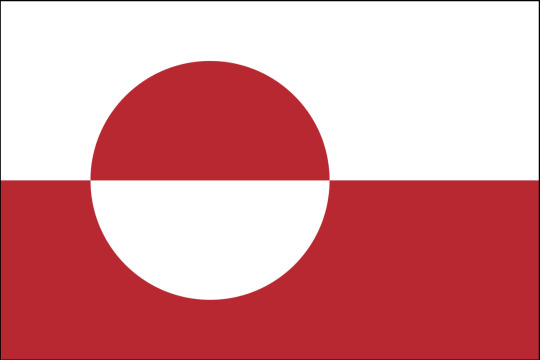
I thought I'd just post two sweet and similar polar flags and be done with it, but the history of Antarctic flags is very complicated, because it was subject to so many territorial claims before the international treaty that guarantees it remains a peaceful non-state, and the difference between the previous proposals and the True South flag proposal [top] is that it's angling to be the flag of the people who live in Antarctica now. The flag of Greenland, meanwhile [above], is the flag of indigenous people trying to assert their distinct identity from the country that colonized them.
110 notes
·
View notes
Text
The 1987 Montreal Protocol, which phased out the production and use of chemicals that were depleting the ozone layer, has long been considered one of the most successful environmental treaties in history. New research finds that the global pact achieved another unforeseen benefit: delaying the melting of Arctic sea ice.
In a study published Monday in the Proceedings of the National Academy of Sciences, researchers from the University of Exeter and Columbia University found that the implementation of the Montreal Protocol is delaying the first ice-free Arctic summer by up to 15 years. That’s because the chemicals banned under the agreement are also potent greenhouse gases.
“Our results show that the climate benefits from the Montreal Protocol are not in some faraway future: the protocol is delaying the melting of Arctic sea ice at this very moment,” Lorenzo Polvani, one of the study’s authors, said in a press release.
The study authors ran a series of climate models based on two different scenarios: one that included levels of ozone-depleting substances that would be expected if the Montreal Protocol never existed, and another accounting for the global treaty. The researchers concluded that the protocol is postponing the first ice-free Arctic summer by a decade or more, and entirely due to the phasedown of ozone-depleting chemicals.
The Montreal Protocol was created to address a hole in the stratospheric ozone layer over the Antarctic. The ozone layer protects the Earth from harmful ultraviolet radiation that causes skin cancer and cataracts in humans. The treaty phased out almost 100 chemicals — including aerosols used in hair spray and other products, refrigerants, and solvents — that were found to be responsible for destroying stratospheric ozone.
Those banned chemicals, collectively called ozone-depleting substances, or ODS, are also potent greenhouse gases, with up to tens of thousands times the global warming potential of carbon dioxide. The report authors estimate that 1 metric ton of avoided ODS emissions leads to 7,000 square meters (more than 75,000 square feet) of avoided Arctic sea loss. By way of comparison, 1 metric ton of carbon dioxide emissions results in about 3 square meters (about 32 square feet) of sea ice loss.
Given the potency of ODSs as a greenhouse gas, the authors are not surprised at this outsize impact on Arctic sea ice levels. “Nonetheless, such a large mitigating impact of the Montreal Protocol on Arctic sea ice loss is remarkable if one keeps in mind that the protocol was aimed at preventing ozone depletion in the Antarctic stratosphere, and little was known of its effect on Arctic sea ice when the protocol was signed,” the authors noted.
According to their projections, the Montreal Protocol has already prevented more than half a million square kilometers (about 193,000 square miles) of sea ice loss. By 2030, that amount will rise to more than 1 million square kilometers, and to 2 million square kilometers of prevented Arctic sea ice loss by 2040.
-via Grist, 5/24/23
#arctic#arctic circle#arctic ocean#arctic ice#sea ice#climate change#global warming#sea level rise#montreal protocol#cfc#hfc#greenhouse gasses#carbon dioxide#if we hurry#we can absolutely buy ourselves the time to save ourselves#as someone constantly looking at good news developments in the environment and green tech I truly believe that#good news#hope
418 notes
·
View notes
Text
Antarctic Food
Below you will find my account of eating at McMurdo, but PBS did a whole special on it which has more privileged access and, like, moving pictures and stuff. I highly recommend watching that if you're at all interested in the food question.
As other pleasures in life are restricted or eliminated, food gains significance beyond mere nutrition. When removed from the comforts and diversions of civilisation for months or years at a time, polar explorers had to pay particular attention to the culinary side of their enterprise. Scott learned this the hard way on the Discovery, when their cook was so bad he was sent home after the first year and others took over his job in shifts. Shackleton, on his second visit to Antarctica, brought all sorts of tinned delicacies, and left a lot of them behind in his hut at Cape Royds, which the Terra Nova men would raid on day trips from Cape Evans. Scott was much more careful with his choice of cook on his second expedition, and in his journal he continually praises Clissold's cooking – though Atkinson, writing for a publication he knew no one would read, says that Archer (the ship's cook, who filled in after Clissold was invalided home) was a far superior chef, and made the miserable second winter that much more bearable.
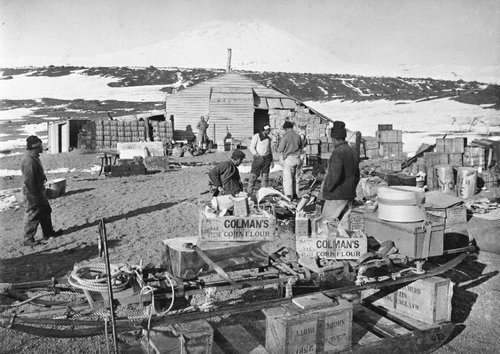
The expeditions of the early 20th Century brought down crates and crates of imperishables – tinned vegetables, powdered milk and eggs, and dry goods like flour, sugar, and tea. These were necessary, of course, but were ultimately supplemental to the core of their diet, which was the produce of Antarctica itself. In fact, in a letter laying out contingency plans if the Terra Nova Expedition were stranded in Antarctica, Scott says not to worry for their safety because the continent provides enough food to keep a party happily fed; they would only be wanting the comforts of a civilised menu. Mostly what the continent provided was seals, whose meat (especially livers) contained enough Vitamin C to stave off scurvy, but penguins and their eggs also regularly passed through the kitchen, and the contents of the marine biologist's net – once properly enumerated and dissected, of course – would often end up in the frying pan. The Notothenia fish was commonly eaten at breakfast, appreciated for its 'sweet' and 'nutty' flavour. Notothenia’s claim to fame is the sugar in its blood that acts as an antifreeze, so this is hardly a surprise.
Thanks to the Antarctic Treaty forbidding the killing of animals for consumption, modern Antarctic larders are not stocked with local wildlife, and as far as I know, no one down there now has tasted the sweetness of Notothenia. They do, however, have the advantage of modern transport and food storage, not to mention a century's worth of advances in the study of nutrition, so the diet of the present-day Antarctican is fresher, healthier, and much more diverse.
McMurdo Station's annual food supply arrives in one lump delivery, every January, on a big cargo ship from California. From the harbour where the Discovery berthed, it goes into climate-controlled storage, either to the dry goods store or to the freezer, which is a whole building off the cafeteria in the main station hub. A freezer, in Antarctica? Why, yes, because food safety regulations require frozen food to be kept at a constant temperature, and the only way to ensure that is to build an enormous manmade freezer in the land of ice and snow. In the summer, temperatures at McMurdo will wander around freezing, so this is entirely practical, but for much of the year, it's actually warmer inside the freezer than outside.
The modern Antarctic commissariat is not entirely divorced from its Edwardian predecessor, though – frozen vegetables taste fresher than tinned, and are more nutritious and palatable, but they are not fresh; powdered milk and powdered eggs are still the status quo. During the summer, perishable groceries – called 'freshies' – come down on the flights from New Zealand, if there is room after the passengers and equipment are loaded. After a month of flight cancellations, fresh apples and oranges are greeted with as much delight as they were on the arrival of relief ships in the Heroic Age, and the appearance of a salad bar in the Galley prompts general rejoicing.
The US Antarctic Program has its roots in the Navy, and McMurdo is still provisioned by one of the big firms that supplies the US military. Having had experience with industrial-scale American catering in California, I had moderate expectations of the quality of food at McMurdo, but it was surprisingly good. One might argue that the excitement of being there and the daily energy expenditure would be a good sauce for anything, and this may be true, but against this I would argue that dry air impedes one's ability to taste – that fact it was so flavourful at all is significant. People kept apologising for the food in the Galley and I kept telling them, earnestly, that it was better than the food in the Disney commissary. They didn't believe me, but I firmly attest this; I ate at Disney on my return journey and have confirmed it by direct comparison. I know they were working with roughly the same quality of ingredients, but the chefs at McMurdo reliably made things delightful to eat, which is more than I can say for the other place. Why this should be is anyone's guess ... Working as a Galley Rat is one of the few ways enthusiasts can get down to the Ice, so it's full of keen, intelligent, and curious cooks, and maybe that rubs off on the food. There are people who come back to tackle the unique challenges of Antarctic cuisine year after year, so maybe they're more experienced and invested in the job. My personal theory is that because they have to eat the food, too, of course they're invested in making it tasty – I suspect the folks behind the counter in LA have much better meals waiting for them when they get home.
Mealtimes follow a strict schedule:
5:30-7:30 Breakfast (many a time I missed the cutoff, woe)
11:00-13:00 Lunch
17:00 to 19:30 Dinner. There was always a portion of the cafeteria serving breakfast food at this time; this was reserved for the night shift workers, who got a reprise of the day shift's dinner for their lunch. If you really liked whatever was served for dinner, nothing could stop you coming around again for another go at midnight.
The one exception to this was Sunday, when a brunch would be served from 10 to 12. The service in the chapel started at 10 as well, and was very weak competition. Brunch was always excellent, and being the single day off, was often where one would meet up with people who were too busy during the week.
If you failed to make a mealtime for any reason, there was always something on offer. A fridge would be stocked with packaged leftovers, sandwiches, and other food-to-go – when I had a day out, I would eat breakfast and then grab my lunch from this fridge. On one occasion, dinner included fried okra (one of my faves, rarely had outside the States) and after stuffing myself with it, I nabbed two or three extra portions and cached them in my dorm room mini-fridge to enjoy later.
In a challenging environment, with a lot of people doing energy-intensive jobs, calories are important. There was only one rule regulating portions: Take what you want, but eat what you take. With a finite amount of food on hand, and delivery only once a year, food waste is anathema – if you need it, then eat it, but do not throw any away.
The menu seemed to originate with whatever presented itself in the enormous freezer, though perhaps in November and December it was dictated more by what remained in it, prior to the new shipment. We didn't suffer for want of variety, though: if anything, we benefited from a surfeit of prawns, including great bowls of them at Sunday brunch. I found myself wondering if the US military had a contract for most of the catch from the Gulf, and how much of their famously inflated budget went into that; I suspect, in reality, the kitchen just hit a seam of prawn in the recesses of the freezer and had to use it up. As a devotee of all shapes of sea bug, I was in seventh heaven, and did my level best to help McMurdo clear the surplus.
Once new food was defrosted and cooked up, it would cascade through various dishes down the week, as leftovers were repurposed to minimise waste. Usually this was successful, but sometimes they had to try a little harder ...

A variety of cuisines were offered, some of which were more successful than others. They seemed to reflect the makeup of the US military, for whom the rations would have been designed. The best dishes were the meat-and-potatoes variety (my minder said that if she were on Death Row, she'd ask for McMurdo Pot Roast for her last meal), Italian, Southern (see above re: okra), and what I assume was Tex Mex – the only misstep on the last count was an almost inedibly hot 'taco soup' which may have been more of a delivery vehicle for leftovers than an intentional dish. The only disappointments were anything attempting to be Asian, and the fish, which, due to the circumstances, was always overcooked. Provision was always made for vegetarians and even vegans, but I can't say I noticed many people adhering strictly to those diets. I suppose if the animals are already dead and in the freezer, there's little difference whether you eat them or not.
There was also, always, pizza. It was left in one of those tiered heated racks like you get at a buck-a-slice takeaway pizzeria, but this was no buck-a-slice pizza, this was McMurdo pizza, and McMurdo pizza is AMAZING. My brother-in-law's cousin went to super legit pizza school in Naples, and gets queues down the street wherever he opens a pizzeria. He makes the best pizza I have ever had anywhere; McMurdo’s wasn't quite as good as his, but it was pretty darn close. It's a testament to how good the rest of the food was that I didn't just have pizza for every meal. The pizza kitchen runs 24 hours a day, and takes orders for pickup from all across the base. If you're flying out to a field camp, it's good manners to take their pizza order and deliver it to them hot and fresh. For all the advances in food technology since the Heroic Age, surely the greatest has to be the McMurdo Pizza.
We were reminded constantly how important hydration was, and the Galley offered a range of liquids at all hours. To my surprise, what looked like a soda fountain offered not pop but fruit juice – grapefruit, orange, cranberry, and apple, though one or more often ran out before the end of breakfast. There were enormous urns of extremely weak coffee – a provision, I supposed, for its diuretic effects – though with 10-hour workdays and very early starts, a little more oomph would have gone a long way. Experienced hands, and those of discerning tastes, brought their own coffee or sourced it somehow from the stores. The kitchenette in the Crary library was full of people's personal coffee-making supplies as they sought a more effective brew.
I had been warned that if I liked tea, I should bring my own; this was a sound warning, as the black tea on offer looked and smelled as though it had been on a shelf for about a decade. What I had not been warned about was that the only 'milk' on hand for one's coffee or tea was, in most places, 'coffee whitener', a ubiquitous Americanism which I'd completely forgotten about (or supressed?) since moving away. For those who've not had the privilege of its acquaintance, this is a blend of margarine, sugar, synthetic vanilla, and titanium dioxide, rendered into a powder by some unknown chemical process and packaged up to pass for milk. (I think it might be illegal in Europe. I've certainly not seen it around.) The Galley had the base's only dispenser of actual mammalian lactation – reconstituted from powdered, of course. If I were to go again, I would bring a small bottle to fill there with 'real' milk, which I could take away for tea purposes elsewhere. There were boxes of UHT milk available for purchase in the shop, and had I been staying longer I might have invested in some, but for just a splash per cuppa, it hardly seemed worthwhile.
The undisputed star of the Galley was the soft serve ice cream dispenser, named Frosty Boy (or Boi), an ancient beast that was such an institution that it was rumoured the USAP had bought another one from a junkyard just for parts. The Thing to Do was, instead of putting milk or coffee whitener in your coffee, to use a dollop of Frosty Boy instead – I'm not sure which end of the dairy/non-dairy spectrum his product was nearest, but it did go well in the coffee, such as it was. More often than not while I was there, Frosty Boy exuded only a watery splutter rather than creamy delight – even when he was working, the product was rather gritty – but I was assured he was just going through a phase, and would be right again soon. I got the impression that if anyone tried replacing the machine with something more reliable, or which produced something more resembling ice cream, there'd be a protest. We shall see if Frosty Boy survives the station revamp, as the NSF seems keen to scrub out any vestiges of character ...

I have brought two things back from the McMurdo Galley, and they're things that go right back to the beginning: powdered milk and powdered egg. Even when I'm near a shop with both in fresh form, it's convenient to have the powdered on hand for recipes. I really only use milk to splash in my tea and coffee, so don't keep a large amount in my fridge, but recipes often call for far more than I have – so instead of making a trip for the extra, I can just mix it up on demand. I've also taken on the Perpetual Yoghurt: McMurdo makes its own yoghurt from its vast reserves of powdered milk, using a bit of the last batch to inoculate the next, and it turns out this is perfectly doable at home, too. Eggs eaten as eggs are better fresh, of course, but when providing structure in a recipe, no one's going to notice if they've been reconstituted, and then I can save my 'real' eggs for when they'll be appreciated. It's a good system, and economical, too. Alas, the pizza isn't as easy to replicate at home ...
For more information on McMurdo food –
The Antarctic Sun newsletter put out this podcast: https://antarcticsun.usap.gov/features/4329/
I didn't mention how good the desserts were; I was lucky enough to share my time at McMurdo with Rose McAdoo, who was featured in this story on NPR: https://text.npr.org/779463164
160 notes
·
View notes
Text
Antarctica Day is an international holiday recognizing the anniversary of the signing of the Antarctic Treaty in 1959. It is celebrated on December 1st each year. Along with Midwinter Day, it is one of Antarctica's two principal holidays.
Happy Antarctica Day From The 7th Continent of The World 🇦🇶
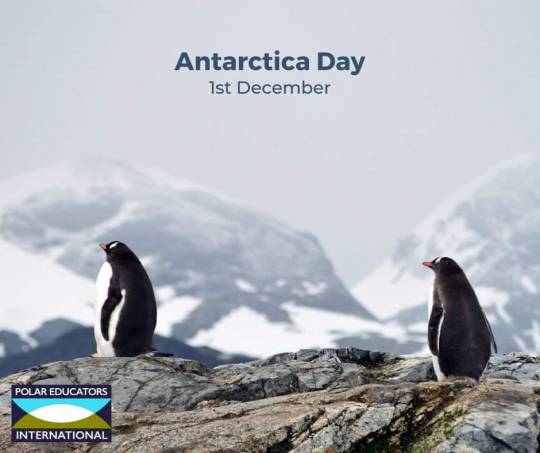
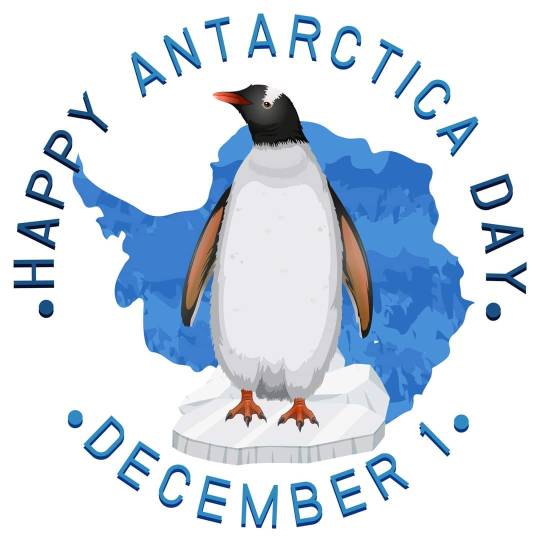
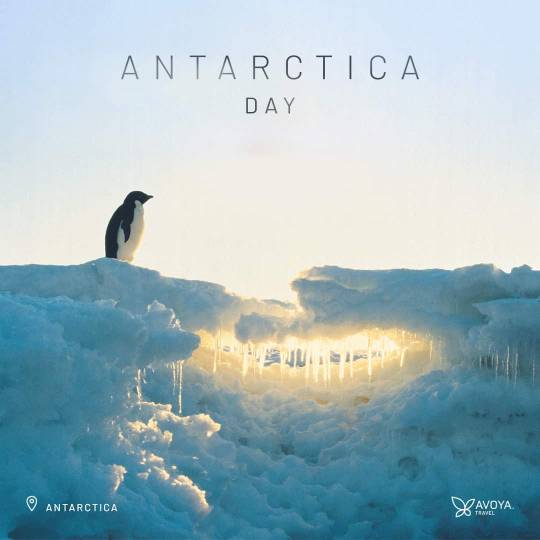
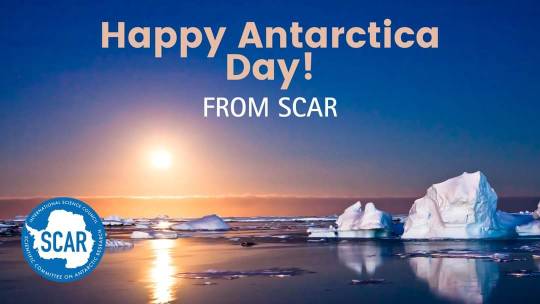
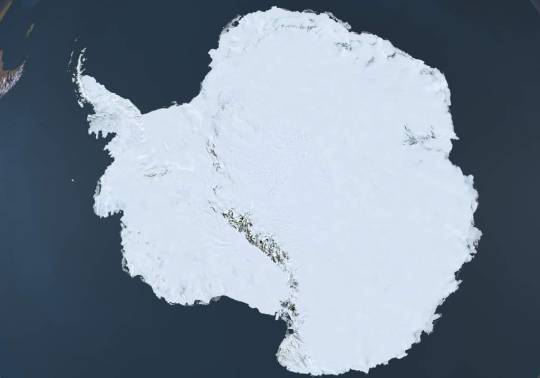
#Antarctica #AntarticaDay #7thContinent
30 notes
·
View notes
Photo

Did you know, the King penguin, like all 18 species of penguins, is legally protected from hunting and egg collecting? 🐧 The Antarctic Treaty of 1959 makes it illegal to harm or interfere with a penguin or its eggs, and researchers must have a special permit to collect specimens. Perhaps it explains why these creatures are still incredibly plentiful on South Georgia. I'm grateful for it! #goodtripsonly #penguins #southgeorgia #southgeorgiaisland — view on Instagram https://ift.tt/GSxpt7C
64 notes
·
View notes